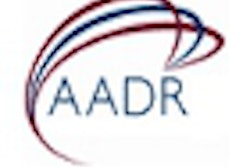In response to a series of papers released June 3 by the American Association of Public Health Dentistry highlighting proposed curriculum guidelines for a two-year training program for dental therapists, the ADA today issued a statement reaffirming its position on midlevel providers.
The ADA issued the following response:
Lawmakers, charitable organizations and other stakeholders -- some of them with very little experience in or understanding of oral health care -- are proposing various models for so-called "midlevel" dental providers, non-dentists who would perform surgical/irreversible procedures.
To date there has been no consensus on the specific prerequisites, scope or duration of educational program, or other critical attributes needed to define any academic model.
The AAPHD recently published a series of papers that seek to clarify that by describing a recommended curriculum for the training of dental therapists.
While we appreciate the work that went into this, we disagree on a critical point: The ADA does not believe a non-dentist should perform surgical/irreversible procedures.
The ADA supports innovations in the dental team that would improve oral health among people who lack adequate access to care, provided that those innovations do not compromise the very system they seek to extend. Our own Community Dental Health Coordinator pilot project seeks to do that by training community health workers who specialize in oral health education and disease prevention, factors that ultimately are the nation's best hope of ending what we all agree are unacceptable levels of oral disease.
The majority of dentists who belong to the AAPHD are also members of the ADA; they provide valued perspective and resources to our advocacy on behalf of the nation's oral health. The ADA historically has been among their greatest supporters and advocates, and we will continue to be so. We will continue to work with the AAPHD and all interested stakeholders toward the goal we all share: a healthier more productive nation. But in doing so, the Association will not erode its unequivocal opposition to non-dentists performing surgical/irreversible procedures, or to other proposals that we believe run contrary to the public good.



















